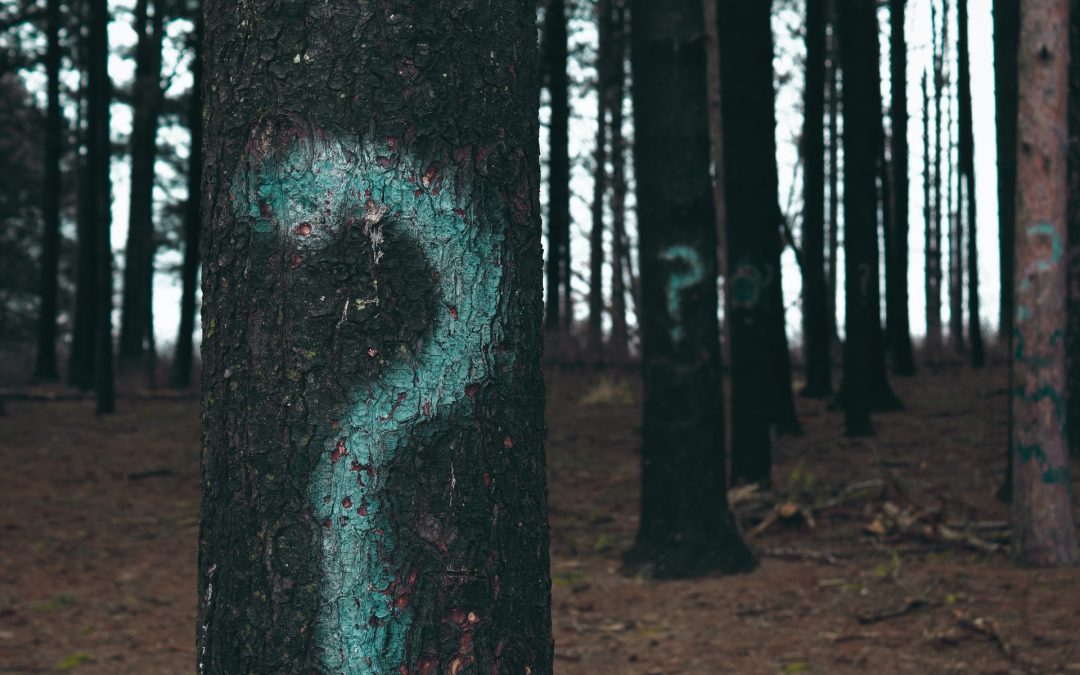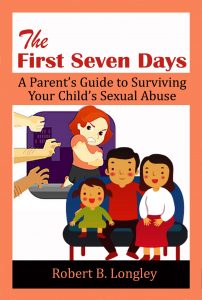If you are a clinician there is an actual answer to this. But if you are a parent, or a victim, the better question is “does why matter in sexual abuse to you?”. Before I go down this path lets look at a somewhat related example. Recently, Army Staff Sgt. Robert Bales was charged with 17 counts of murder for killing civilians in Afghanistan. Evidence is pretty clear, but at the same time Sgt. Bales has no memory of the event. The average person hears the last part and generally thinks that’s a convenient excuse. While it may or may not be the case in your circumstances, sexual assault victims often don’t remember significant aspects of the abuse experience. Additionally, victims will often do things they have no memory of when triggered by some event.
I once dated a girl who tried to get out of the car at 60 mph. I later learned that I had driven by a place where she had been raped several years before. When I told her what she did, I basically got, “I did what?”. Aside from the simple fact of it happening, it was also strange in how it happened. She undid her seat belt and opened the door as casually as if we were parked. I’m sure that me grabbing her and pulling her back in the car was as much of a shock to her as it was to me. At that moment she wasn’t riding in my car, she was somewhere else.
So where was Sgt. Bales when he killed all those people? Was he a trophy hunter out for a little payback? Or was he reliving an incident that happened months ago? Forty years ago, there were more than a few Vietnam Veterans who returned from the war and woke up one morning with their spouse shot or stabbed to death lying next to them. Post Traumatic Stress Disorder (PTSD) is the common label these days, but it has had various names over the years.
There’s still a lot of legal debate as to whether it is an excuse or a reason. As we learn more, we are likely to have a better understanding of what is actually going on in the brain. But try explaining this to an Afghani who’s children were murdered. Diminished capacity caused by PTSD is not an explanation that is likely to play well in that part of the world.
Sexual Abuse Responsibility
So what is an appropriate legal, or moral, response when someone does something unimaginable when their sense of circumstances or reality is altered based on PTSD? I don’t have the answer to this. It creates some legal challenges. As soon as you acquit someone for doing something like this, it quickly becomes the defense of the month for everyone out there trying to get away with crimes. Conversely, if you punish someone for unconscious actions, who are you benefiting? Occasionally you will hear stories of people getting pulled over and arrested for driving naked. They are asleep! Should people be responsible for things they do when they are asleep?
This particular case could get interesting since there are some military regulations that limit personal responsibility if someone has been on duty more than 16 hours. I don’t know if that applies here. I only ever encountered that once while in the military. On the first day of the gulf war I was actually on duty longer than 16 hours and was told that I had to go home. The more you know, the more complicated the issue gets.
Complexity
As complex as the conditions are for PTSD, the conditions as to why someone sexually abuses a child are even more complex. In cases where the abuser is a teacher, priest, or someone else outside the family it’s easy to find blame and to see that person as a predator. In cases of adult child incest, the blame is still there but we tend not to see the predatory aspect of the abuse. It was opportunistic more than planned. The latter of these two examples is actually the more common. Statistically in terms of number of abuse cases, incidents involves siblings, cousins and close friends are actually in the middle of these two groups. This is where things get really muddy.
Lets say that your 7 year old son is being molested by his 11 year old cousin. In most states, juvenile sexual offenses are evaluated on several criteria. These include past incidents, history of abuse, age difference, and degree of planning. I’m greatly oversimplifying but I’m not a clinician, and I’m just trying to make a point. In this example, 4 years difference is often the cutoff when courts look at inappropriate sexual contact as more of a behavioral problem and less of a criminal act. Over the course of the investigation you learn that your nephew is being regularly beaten by your brother-in-law. This is often the most common cause of juvenile’s abusing other’s sexually.
Sexual Abuse is about Power
It has nothing to do with sexual preference or interest in children for sex. It is about reclaiming power by exerting it over someone else. In your case, the older boy isn’t trying to manipulate the people around him to spend time with children, but every time he is beaten, he takes it out sexually on someone younger. This is one of many forms of sexually reactive behaviors. Victims of both sexual and physical abuse are frequently known to simulate sex acts or engage in sexual acts that are non-age appropriate, or out of context with what should be their knowledge of sexual activities at their age. In many cases the victim in one set of circumstances becomes the offender in another.
Regardless of your circumstances, it is probably as complex as any scenario I could outline here. In almost all circumstances involving adults, my personal feeling is that “why” is not important. The difference between us as adults, and lower forms of animals is apposable thumbs and the ability to control our sexual impulses. Adults should be held responsible for their actions.
The line is less black and white when it comes to children as the offender. If this applies to your situation, you may or may not come to see more than one victim. Children are rarely predatory, most times they are just acting out a response to their own abuse. I don’t know if that fact is likely to make you feel any better about the event. It may make you see that it is part of a more complex series of events. You may even be able to believe that your offender is sorry.
Let us know if we can help you dealing with your family’s sexual abuse victim situation. For ideas to get started please check out our book on what to do during the early days after disclosure.

